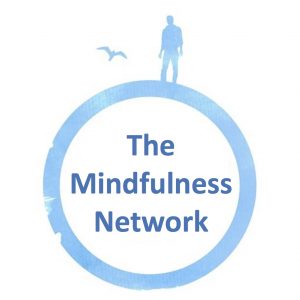
Lynne Wheeler is a mindfulness teacher and Trustee of the Mindfulness Network. As someone who has applied for and used our bursary scheme, Lynne’s valuable feedback around inclusive language meant that we have since reviewed and changed several elements of the bursary application process. At the Mindfulness Network, one of our core values is “To be humble, committed to learning and open to change” – we do listen and act on feedback about all of our services.
Read Lynne’s account, below.
It was the end of 2019 and I was in my Thesis year of the Masters in Mindfulness Based Approaches with Bangor University. I’d managed to attend and pay for, with the help of my post graduate funding, a retreat during the year. I had taught two MBCT courses within the NHS so I was ready to apply for registration to the British Association of Mindfulness-Based Approaches (BAMBA). I just needed to meet the requirement around supervision, which is around three hours of supervision for an eight-week course for a new teacher. Whilst I gained so much from the sessions with my supervisor since the second year of my masters, I could only afford a 30-minute session every 6-8 weeks, which wouldn’t have fulfilled the criteria to be registered. My Mindfulness Network supervisor suggested I apply to the Network for a bursary for our supervision; and thus began my journey into the application process.
Initially I grappled with a strong sense of shame that I couldn’t afford something that, on the surface at least, appeared easily affordable to my peers. “I can’t afford that” isn’t something that we say very often or very easily. We’re more likely to skirt around it and make other excuses for why we can’t do something, which just makes being skint an even lonelier place than it needs to be. We imagine that everyone else can easily pay for the things that we can’t. For most of us from a low socio-economic background, being without money has left us vulnerable to feelings of shame, not being good enough, and excluded from aspects of society. It is a brave and difficult thing to stand up and ask for money when these feelings and experiences are just below the surface. For me, I needed it to be suggested by a solid, trusted other, which in my case was my Mindfulness Network supervisor. I’m not sure I would have found the bravery to make myself vulnerable and ask for the bursary without them. The very fact that they suggested it let me know that I was wanted in mindfulness spaces.
My aim and intention once registered with BAMBA with the help of the supervision bursary, was to offer a Mindfulness Based Programme (MBP) for the LGBTQ+ community. My experience as a gay woman within mindfulness spaces is that there are difficulties to navigate within the spaces that are unseen by those who do not identify as LGBTQ+. This is not in any way meant as a criticism to anyone; I see it as a product of our heteronormative society. Heteronormativity is a term used to describe a society in which people are assumed heterosexual unless they state otherwise. This can often mean that those of us who identify as anything other than heterosexual are forced into a decision to either remain silent, or announce our sexuality if it is mistakenly assumed as heterosexual. We need to make a very quick decision if it is safe for us to reveal our sexuality or not. There are daily examples in the media of people being abused both verbally and physically, or of being ignored and excluded due to identifying as LGBTQ+. So no wonder we can feel unsure if we are fully welcome in spaces and are on the look out for signs that we will be safe as our full selves.
I read a quote recently on a social media page, which said:
Brains will first ask “Am I safe?” then, “Am I loved?”
Only when the answer to these is “yes”, will it then be ready to ask,
“What can I learn?”
(Author unknown)
If I relate this to an MBP, and remember that people may be coming along to learn a new skill to support them to live a life free from undue suffering, it is vital that we as teachers provide that “yes”. The provision of a MBP where everyone, including the teacher, belongs to the LGBTQ+ community, removes the fear that our sexuality may not be welcome in the space. We feel more able to bring our whole self into the space and thus we are open and able to learn. I wrote a deeply personal thesis (“An Autoethnography of a Working Class Gay Woman Becoming a Mindfulness Teacher”) on these themes for my Masters.
Whilst I found the process of applying for the Bursary pretty straight forward and every person I dealt with during the process kind, warm, and welcoming; some of the wording in the form and in the Bursary information was off putting at the time. It didn’t help me to feel safe to make myself vulnerable and ask for the money. I had thoughts with strong feelings attached that I was being asked to pit myself against others in need of a Bursary. I felt uncomfortable that if I was given the Bursary, others would not be. I almost didn’t send in the application due to my discomfort. Some gentle exploration of this with my Mindfulness Network supervisor allowed me to stay grounded and connected to my intention for the bursary, which was to offer an MBCT/MBSR course to the LGBTQ+ community. What I know now is that, if I were given the Bursary, it would not affect anyone else receiving one at all. It was merely about the wording used at the time and how that landed with me. (The bursary application process has since been updated based on this feedback to be more inclusive and accessible).
I am volunteering now as a trustee for the Mindfulness Network and I am part of working groups looking at the bursary process and also the Equality Diversity and Inclusion policy. There have been some brave, open conversations within these groups and changes have already been made. The ultimate aim is to expand the reach of the Mindfulness Network so that mindfulness practitioners, teachers, and supervisors, represent the whole of our diverse society. As a gay woman from a working class background, I may not see or hear many like me within mindfulness spaces just yet. However, my experience as a trustee is telling me that there are people who desperately want this to change and are actively working to increase the diversity of identities within mindfulness spaces.
Thinking of applying for a bursary?
The Mindfulness Network is committed to ensuring that our services are as accessible and inclusive as possible. Part of our vision involves removing financial barriers, as much as we can, by offering bursaries so that people from all backgrounds can afford to train to be mindfulness-based teachers, receive supervision and attend mindfulness retreats. To find out more about our bursaries and apply, please visit: https://home.mindfulness-network.org/bursaries/

If you are struggling with some of the issues I’ve spoken about here and would like to have a conversation about applying for a bursary to access training, retreats, or supervision with the Mindfulness Network, please contact me here, lynnewheelercpn@yahoo.co.uk
Read my trustee bio.
You can access and read my Thesis here: An Autoethnography of a Working-Class Gay Woman Becoming a Mindfulness Teacher – Lynne Wheeler
All donations help to fund our bursaries
As a charity we want to continue to offer high-quality mindfulness and compassion events for all, while those who wish to support us can do so via our donations page.




